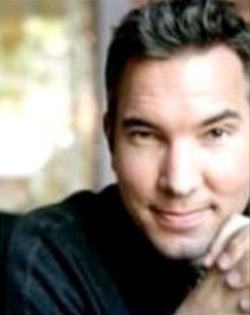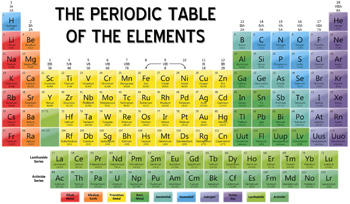By Brian Nixon

The Biblical basis for an “Icon Number” (IN) arises from the Apostle Paul’s use of the Greek word eikon in Colossians 1:15. In this case, Paul is relating the word “icon” to Jesus—the exact image of God. Later, in Hebrews 1:3, the writer of the book uses the term charakter in a similar way. In the Greek, character means an engraving, a stamped figure that was used to represent an exact copy, or what some translators pose as “an express image.” In either case, I borrow the Biblical word and apply it to mathematics, hence the IN.
Concerning the IN my general premise is this: if mathematics is one of the languages of God — how He created, orders, conducts, and controls the universe — could it be that each person has a corresponding number, an equation for our life, an IN? I know this sounds bland, like we’re codes on some product. But I think the ramifications are more alluring than the analogy of a supreme being scanning a numerical code that happens to be a person.
So what makes an Icon Number? I propose that an IN is the combined numerical configuration consisting of all external and internal physical properties that make up an individual being or thing. For a human this would include the smallest of physical items in our cells to the larger organs, mixed with all the numerical configurations of geography, including all macro and micro movement and coordinates (from blinking an eye to flying across the globe). Of course, both areas (physical and geographical) would need to be translated to numbers via elemental properties (what we’re made of) and movement coordinates. The combined equation for an IN would be as such:
P + G = IN.
As you can imagine each number would be different; there are no two people — or things — numerically alike in both physical and geographical constitutions. The probability of someone moving exactly like another human being — from conception to death, mixed with their unique physical being — is so great that exact numerical configurations would be concurrence. And in the event of an exact numerical IN, one cannot dismiss the soul—an imprint of our person in a metaphysical sense that is the ultimate determiner of our differences compared to other people. A helpful way to summarize the influence of personality is how P + G affects personality, culminating in a unique person and IN. It goes without saying that only God knows individual IN numbers (for humans to decipher this would be beyond our ability—at least at this point).
So why have an IN? Other than it sounds cool, I think there are some theological ramifications. First, it can help give definition to how God was able to create — through mathematical precision—the world. Now I don’t want to give the impression that God is some Great Mathematician in the sky, a Grandpa Inventor concocting equations; He’s not. The way I see it as a Thomist is that God is pure actuality with no potential to not exist (i.e., God is a necessary being, that is, a being that cannot not be), having no passive potential whatsoever: God is the cause of everything in existence. God is also simple, without parts, indivisible, an absolute One. So rather than numbers existing outside of God — something He uses — they are the effects (or numeric descriptions of reality) of His actions upon the world: God spoke and it was. But the “it was” — creation — has numerical offspring, which are likened to fingerprints left on a vase from an artist.
And as part of God’s creation, the unique numerical affects seem to correspond to created things, including humans, as well as the laws of nature (e.g., E=mc2). God created mathematics and we see God’s use of mathematics in the universe. God is not a principle of logic — of numbers — but is beyond numbers and time. So, yes, IN and all mathematics seemed to have existed as an idea in the mind of God prior to creation, as did everything else that was brought into being. Though mathematics is theoretical and abstract, it marvelously corresponds to reality. What I am not saying is that numbers have an independent metaphysical existence, but rather, reality is beautifully reflected and described by mathematics, which was known to the mind of God eternally. This being the case, could it not be that all humans have IN coordinates as part of our existence?
 Second, there’s the intriguing synergism between God’s work and human work inherent in the IN concept. As Originator, God held the blueprint of all of existence in His mind, the flow of which can be understood with mathematical equations. The elements (best understood through the periodic table, with each element assigned a number) along with all microelements and quantum material (we’re still trying to grasp all these) constitute the material all things are made of, including humans. And as said above, this material — along with geographical movement — makes individuals’ unique coordinates, the IN.
Second, there’s the intriguing synergism between God’s work and human work inherent in the IN concept. As Originator, God held the blueprint of all of existence in His mind, the flow of which can be understood with mathematical equations. The elements (best understood through the periodic table, with each element assigned a number) along with all microelements and quantum material (we’re still trying to grasp all these) constitute the material all things are made of, including humans. And as said above, this material — along with geographical movement — makes individuals’ unique coordinates, the IN.
And though we can’t change much of our physicality — at least on a micro level (we can change our physical appearance, of course)—it’s the physical that’s been largely set — according to kind or species—by God. Put another way, all things were put in place according to God’s taxonomy (for lack of a better word); the way God deemed to arrange all things within the universe. And the way God arranged and created the universe can be measured in numbers, the fingerprints of His creation.
But here’s where it gets interesting. How does the P number — which was sovereignly set at creation—interact with the G number, the physical movement of all things from their creation to their demise?
The metaphysical answer for a human being is freewill — the God-given ability to think and make rational or irrational choices (this of course would keep God from being the author of second causes, such as a human’s ability to sin), mixed with responses to the natural world (a dog is running after you, so you run). Numerically it would look something like this:
P/P + G/G= IN
I divided the number by itself for simplicity (a number divided by itself is always 1). But I also do it for practical purposes: for in the change a human can make to himself or herself (such as a facelift or sex change regarding P; or any geographical movement one can imagine for G), God is in full knowledge of that decision or action and can accommodate the equation, simultaneously arriving at both the solution and validation, the final IN. Put another way, any change always equals the sum of the change. In theological terms we can say that God can work all things together for His purposes. The best way I can summarize the division analogy is as a basic division problem: the upper letters for P and G act as God’s numbers — the dividend in math jargon. And the lower numbers for P and G act as the human element — the divisor.
The line that separates the two is called the fraction bar — or that which happens in real time. Of course the quotient (end product) will always equal itself, because God knows the final solution, both for P and G; our actions are part of God’s equation, so to speak; our IN will always be the sum of what God computed.
Another problem to work out concerns those things that don’t have a mind — rocks, dirt, plants, and the like. And though it may seem mathematically easier to take away the choice element connected to humans and animals, there are still interesting aspects to consider: chance and nature. If the G movement is based upon the activity of God’s original blueprint for creation (gravity, wind, electricity, etc.), then how does chance and nature, acting upon the item through the natural world, affect the outcome? I would suggest the same as above. But instead of freewill or human action, we’d put chance or nature in the lower equation: P/P + G/G = IN. The upper numbers for P and G would represent God’s number, and the lower P and G would represent chance and nature. As stated above, the sum would be equal to itself; the quotient (end product) will always be in accordance with God’s final solution and verification.
Like all analogies, these fall short, but it’s as close as I can get for now. But to summarize them, I’d say that all activity (living or not)—including freewill, nature, choice, and chance—is the coordinates of the thing, its IN, which has a number sequence that corresponds to it; the IN is the thing in a numerical sequence, a numerical mirror image.
What are the theological ramifications of this analogy? The most obvious ramification is this: things with a soul and/or brain can alter the P and G items, thereby co-authoring the equation of its life. Practically speaking, a human being helps write the numerical sequence for his or her life through the actions and choices made. And though each person is not the sole “bard of his own existence,” as writer Cormac McCarthy’s character states in the book Cities of the Plain, we are co-mathematicians in formulating the equation of our life, helping finalize our IN (through movement, choice, chance, and actions—either self- or nature-caused) at our death.
And as many are well aware, the freewill versus sovereignty argument is alive and well within the IN concept. But what can’t be argued—at least for a human being—is that choice, nature, and action affects the numerical configurations of an individual, his or her IN. If I choose to walk to the park taking a long path, or drive to the park taking a short path, that affects the IN of my life. The question is: Does God control all G actions (if He did, is He responsible for the bad things I did, the wrong actions or choices?) or does a human have a part in the formation of the IN? Simply asked: Do humans help write the IN code for our lives? Theologically, with the creation of all things, God is sovereign — His bidding for the universe goes.
And because of this, God knows all P and G numbers, even with the effects of choice, change, and movement upon the earth. Yet the reality poses a further question: for living things, how does God’s sovereignty and human freewill interact? We normally qualify it as a mystery (which it is in our understanding), but I’m suggesting that there may be a mathematical basis behind it [3].
And for non-living things, how does nature and chance affect the final IN numbers? And how do all these individualized numbers — both living and non-living — relate and interact to the larger cosmology of the universe as understood through mathematics? Like DNA sequences that make up a living thing, do all the IN sequences throughout history help define a mathematical code that God created? And how does God relate to the mathematical code — if there is one? It almost goes back to the P = NP question I addressed in the previous article [2]: Does God provide the solution and verification of all equations simultaneously, fitting them into His greater purposes, a unified purpose?
And if so, can God’s action — like His creation — be measured in mathematical terms? The answer seems to be yes (but only God would know the final equation or sequence).
I could go on and on asking questions, but an article like this is not the place to do so. And quite frankly, I’m still thinking all of this IN stuff through.
What I do know is that technology has afforded us some blessings, avenues to interact beyond our personal “G” realm. And with the question posed by @lamaneracoffee through Twitter, he or she has prompted me to write this article and think through this concept more. I suppose both of our Icon Numbers continue to grow, helping define our coordinates in this world.
I’d like to thank my colleague Dr. Joseph Holden of Veritas Evangelical Seminary for his quick review and input on the article. Though we are both well aware that the points made in the article are completely theoretical, we both value thoughtful insight into the nature of God. And as one of the only Classical/Thomistic-based Evangelical seminaries in the world (thanks to the influence of Dr. Norman Geisler), Veritas Evangelical Seminary is a unique combination of scholarly pursuits with spiritual returns; a confluence of the heart, head, and hands. For more information on VES, click here: http://www.ves.edu/.
1) https://www.brandwatch.com/blog/96-amazing-social-media-statistics-and-facts-for-2016/
2) http://www.assistnews.net/index.php/component/k2/item/2454-the-language-of-mathematics-in-theology
3) For a theological discussion on God’s sovereignty and man’s freewill, I suggest Norman Geisler’s book Chosen But Free.



